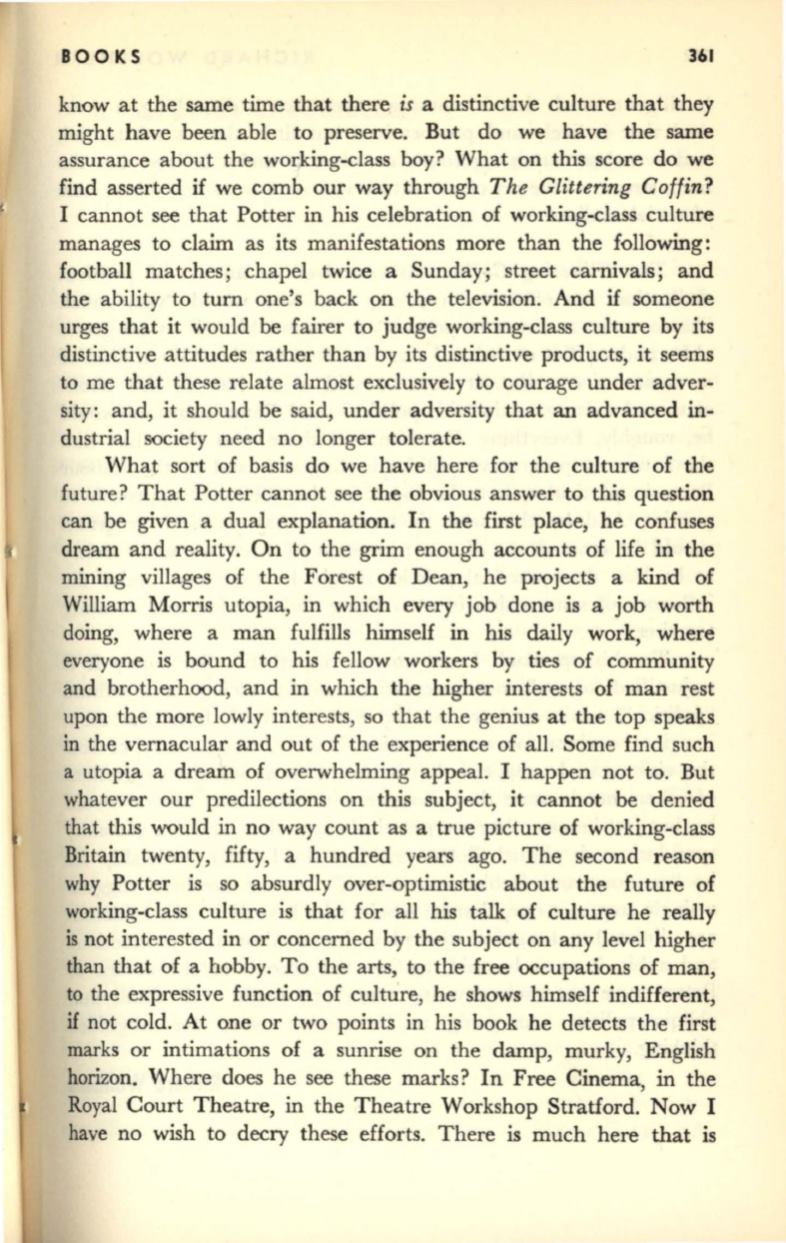
BOO KS
361
know at the same time that there
is
a distinctive culture that they
might have been able to preserve. But do we have the same
assurance about the working-class boy? What on this score do we
find asserted if we comb our way through
The Glittering Coffin?
I cannot see that Potter in his celebration of working-class culture
manages to claim as its manifestations more than the following:
football matches; chapel twice a Sunday; street carnivals; and
the ability to turn one's back on the television. And if someone
urges that it would
be
fairer to judge working-class culture by its
distinctive attitudes rather than by its distinctive products, it seems
to me that these relate almost exclusively to courage under adver–
sity: and, it should be said, under adversity that an advanced in–
dustrial society need no longer tolerate.
What sort of basis do we have here for the culture of the
future? That Potter cannot see the obvious answer to this question
can be given a dual explanation. In the first place, he confuses
dream and reality. On to the grim enough accounts of life in the
mining villages of the Forest of Dean, he projects a kind of
William Morris utopia, in which every job done is a job worth
doing, where a man fulfills himself in his daily work, where
everyone is bound to his fellow workers by ties of community
and brotherhood, and in which the higher interests of man rest
upon the more lowly interests, so that the genius at the top speaks
in the vernacular and out of the experience of all. Some find such
a utopia a dream of overwhelming appeal. I happen not to. But
whatever our predilections on this subject, it cannot
be
denied
that this would in no way count as a true picture of working-class
Britain twenty, fifty, a hundred years ago. The second reason
why Potter is so absurdly over-optimistic about the future of
working-class culture is that for all his talk of culture he really
is
not interested in or concerned by the subject on any level higher
than that of a hobby. To the arts, to the free occupations of man,
to the expressive function of culture, he shows himself indifferent,
if
not cold. At one or two points in his book he detects the first
marks or intimations of a sunrise on the damp, murky, English
horizon. Where does he see these marks? In Free Cinema,
in
the
Royal Court Theatre, in the Theatre Workshop Stratford. Now I
have no wish to decry these efforts. There
is
much here that is


